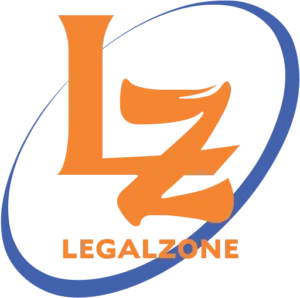Giấy chứng nhận quyền sử dụng đất và quyền sở hữu tài sản gắn liền với đất: Khái niệm, trình tự, thủ tục đăng ký ra sao?

Navigating the Complex World of Luật: A Comprehensive Guide
Understanding the complexities of luật is essential for individuals and businesses alike. Whether you’re facing legal issues, starting a new venture, or simply want to understand your rights, having a solid grasp of the legal system can empower you to make informed decisions. This article will provide an in-depth overview of the fundamental aspects of luật, as well as tips on how to navigate the legal landscape effectively.
What is Luật?
Luật refers to the body of rules enacted by a governing authority that regulates the conduct of individuals and organizations. It serves as a framework within which society operates, ensuring fairness and justice. In Vietnam, the legal system is primarily guided by the Constitution, statutory laws, and regulations enacted by various governmental bodies.
Types of Luật
There are several types of luật that individuals may encounter in everyday life. Understanding these different types can help you identify the relevant regulations that apply to your situation:
-
Criminal Law: This area of luật deals with offenses against the state or public. It includes laws that define crimes, establish penalties, and outline the procedures for prosecuting offenders.
-
Civil Law: This branch addresses disputes between private individuals or entities. Examples include contractual disputes, property issues, and family law matters such as divorce and child custody.
-
Commercial Law: Often referred to as business law, this area governs business transactions and corporate activities. It covers everything from contracts and negotiations to insolvency and intellectual property rights.
-
Labor Law: This aspect of luật regulates the relationship between employers and employees. It includes laws regarding wages, workplace safety, and employee rights.
-
Environmental Law: This area focuses on regulations aimed at protecting the environment. It addresses issues such as pollution control, land use, and resource management.
-
Administrative Law: This type deals with the rules and regulations established by governmental agencies. It governs the actions of public bodies and ensures they act lawfully.
How to Navigate the Luật System
Navigating the luật system can be daunting, especially for those unfamiliar with legal terminology and procedures. However, there are several strategies you can employ to ease the process:
-
Educate Yourself: Knowledge is power. Take the time to educate yourself about the relevant laws that apply to your situation. Online resources, legal courses, and legal aid organizations can provide valuable information.
-
Consult a Legal Professional: When in doubt, it’s always best to speak with a qualified attorney who specializes in the area of luật relevant to your case. Legal professionals can offer tailored advice and represent you in legal matters.
-
Utilize Mediation or Arbitration: For civil disputes, consider alternative methods of resolution, such as mediation or arbitration. These methods can be more cost-effective and less time-consuming than traditional litigation.
-
Keep Detailed Records: Maintain thorough documentation of all interactions, agreements, and relevant transactions. Accurate records can be invaluable if a legal dispute arises.
-
Stay Informed: Laws are constantly evolving, so it’s essential to stay updated on any changes that may affect your rights or obligations.
Common Legal Issues
Understanding common legal issues can help you prepare for potential challenges in your personal or business life. Some frequently encountered scenarios include:
-
Contract Disputes: Whether you’re entering into a lease, purchasing a property, or hiring a service provider, ensuring a clear contract can prevent misunderstandings that might lead to disputes.
-
Employment Issues: Employees may face challenges related to wrongful termination, discrimination, or unpaid wages. Familiarity with labor luật is crucial for both employees and employers.
-
Intellectual Property Concerns: Businesses must safeguard their intellectual property to maintain a competitive edge. Understanding copyright, trademark, and patent laws is vital for protecting your innovations.
-
Family Law Matters: Issues such as divorce, child custody, and adoption require a thorough understanding of family luật to navigate effectively.
The Role of Technology in Legal Matters
In recent years, technology has transformed how we approach luật and legal services. Here are a few ways technology is shaping the legal landscape:
-
Online Legal Resources: Various websites and portals offer access to legal documents and resources, making it easier for individuals to handle legal matters independently.
-
Legal Tech Startups: Innovative legal tech companies are streamlining processes such as contract management and case management, providing tools that enhance efficiency for law professionals.
-
Virtual Consultations: Many lawyers now offer virtual consultations, making it more convenient for clients to seek legal advice without the need for in-person meetings.
Conclusion
Understanding luật is essential for navigating life’s complexities, whether in personal matters, business dealings, or compliance with regulations. By educating yourself, consulting legal professionals, and utilizing available resources, you can manage your legal concerns more effectively. Remember, staying informed about your rights and obligations under the luật can empower you to make confident decisions and protect your interests.
For more information on legal matters and resources in Vietnam, consider visiting legalzone.vn. Remember, your journey through the luật system doesn’t have to be overwhelming; with the right knowledge and resources, you’re already on the path to better understanding and navigating it successfully.








